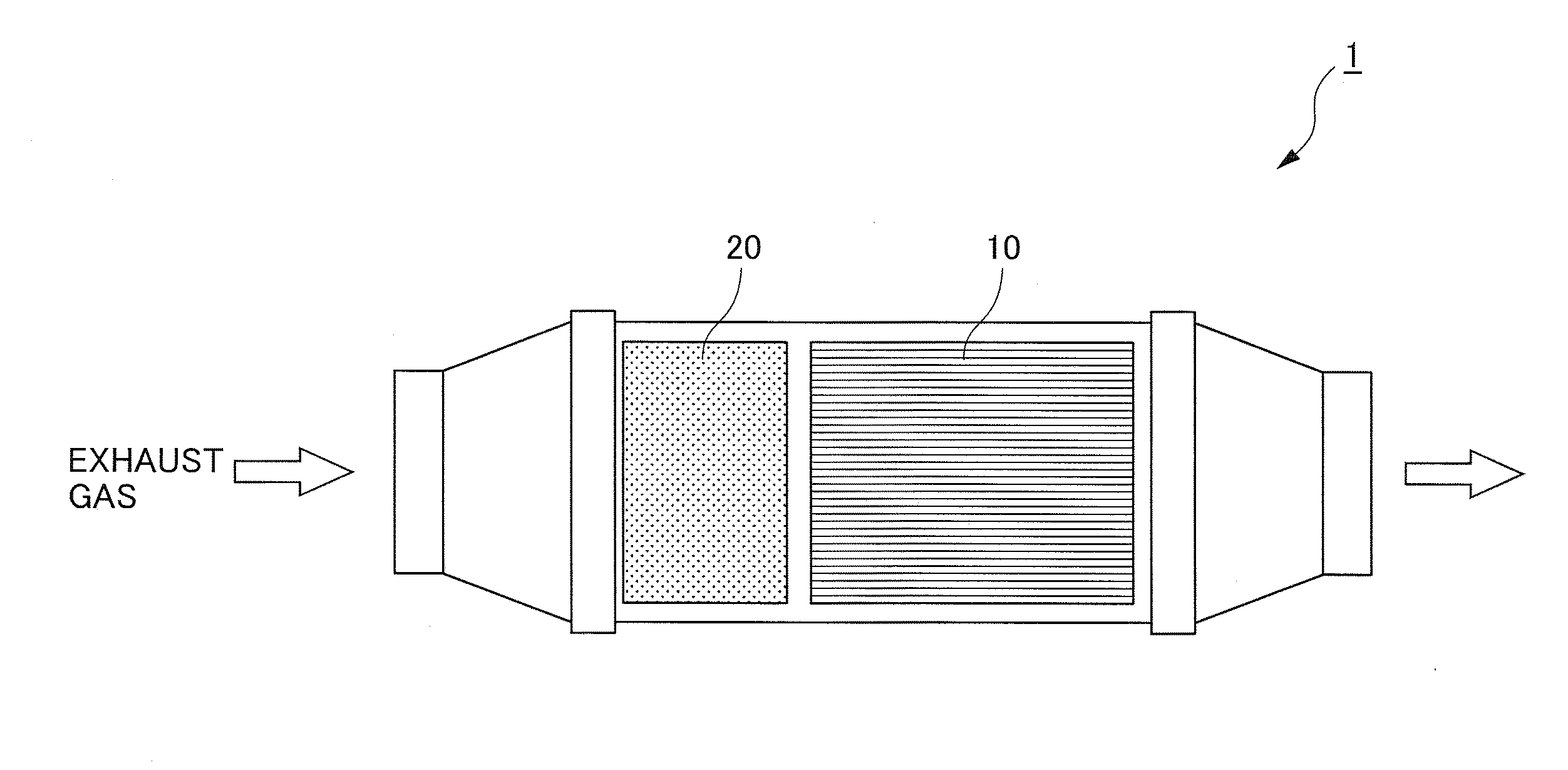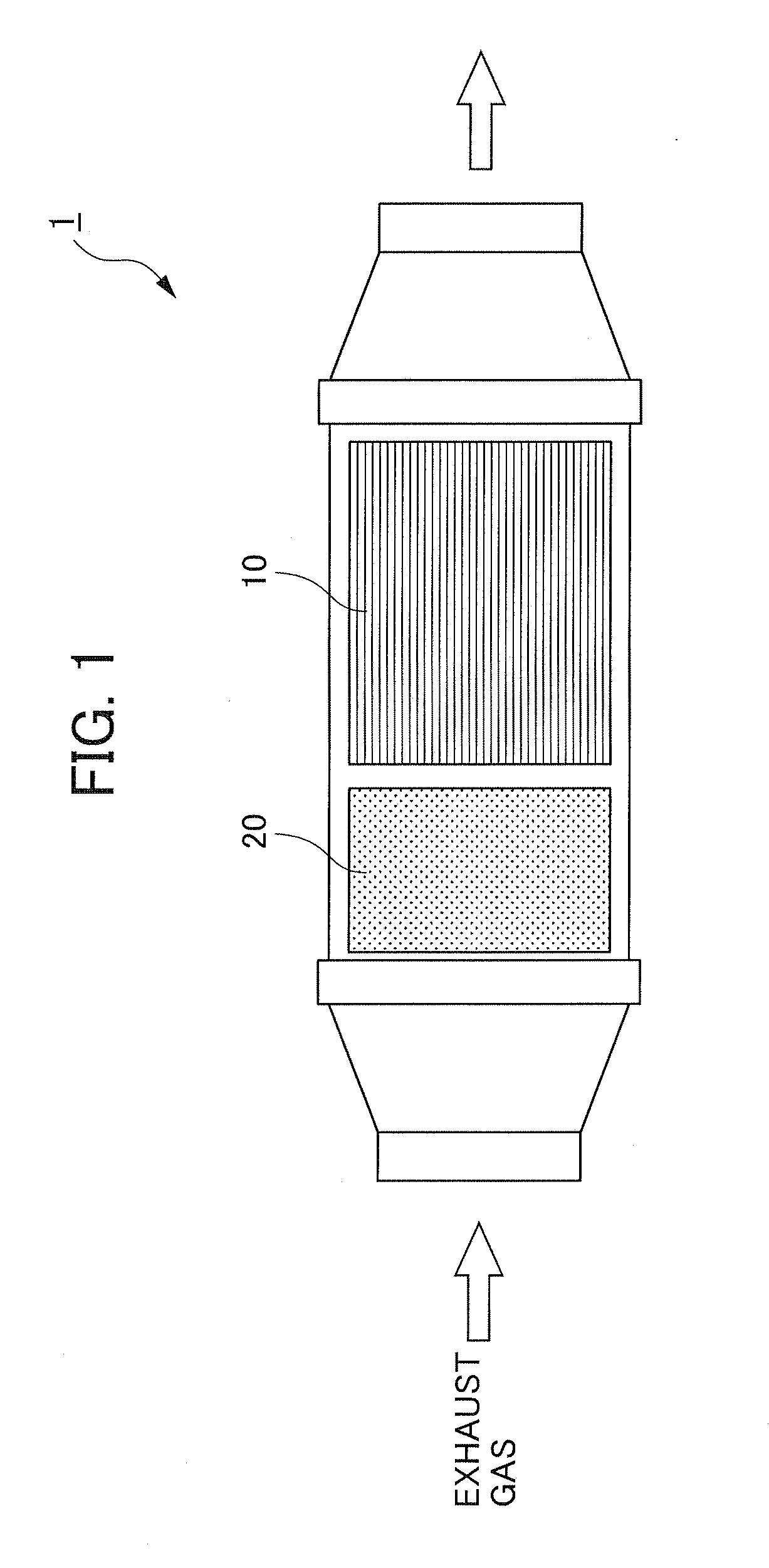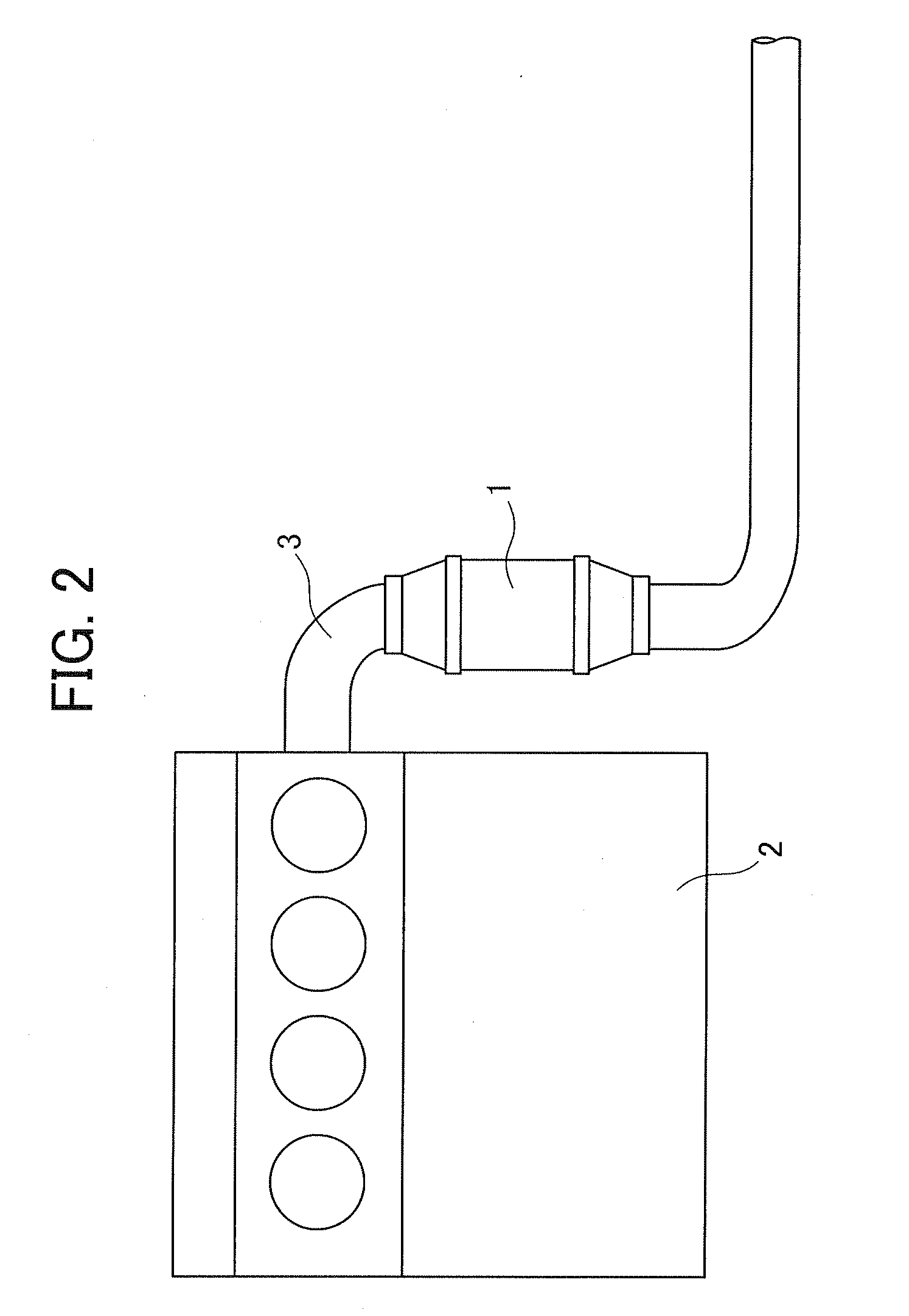Exhaust gas purification catalyst and exhaust gas purification apparatus using the exhaust gas purification catalyst
a technology of exhaust gas purification and catalyst, which is applied in the direction of physical/chemical process catalyst, metal/metal-oxide/metal-hydroxide catalyst, and separation process, etc. it can solve the problems of low dpf from fuel efficiency loss, low purification performance of soot, and small 2 /sub>, so as to improve the reactivity of pm and reduce the temperature of pm combustion , the effect of high heat resistance of composite oxid
- Summary
- Abstract
- Description
- Claims
- Application Information
AI Technical Summary
Benefits of technology
Problems solved by technology
Method used
Image
Examples
example 1
1% Pd, 30% Ag / LaMnO3+PM (5%)
[0097]0.01 mols of lanthanum nitrate and manganese nitrate, respectively, which are commercially available special grade chemicals, and the appropriate amount of distilled water were measured, to prepare a solution A. Next, 3.6 g of sodium carbonate and the appropriate amount of distilled water were measured to prepare a solution B. While mixing the solution B at 300 rpm and 60° C., the solution A was added drop-wise at a rate of 7 ml / min (reverse coprecipitation method). The precipitate was filtered and washed with distilled water until the pH became neutral, dried at 200° C. for 2 h, and then dried to solidify at 350° C. for 3 h. This was granulated to be no greater than 2 μm, and then dried at 800° C. for 10 h to prepare a catalyst A.
[0098]6.9 g of the catalyst A, 4.72 g of silver nitrate, 1.99 g of palladium nitrate and the appropriate amount of distilled water were measured, to prepare a solution C. The solution C was evaporated to dryness with an ev...
example 2
1% Pd 30% Ag / CeZrO2+PM (5%)
[0099]With commercially available high-specific surface area ceria zirconia (Ce:Zr=2:8, 71 m2 / g, manufactured by Anan Kasei Co., Ltd.) as a catalyst C, a catalyst D was prepared similarly to the above-mentioned catalyst B with the catalyst C, silver nitrate and palladium nitrate. Example 2 was prepared by allowing for tight contact of the catalyst D similarly to the above-mentioned Example 1.
example 3
1% Pd 30% Ag / CoTa2O6+PM (5%)
[0100]A catalyst E was prepared by a reverse coprecipitation method similarly to that described above with cobalt nitrate, tantalum oxide, sodium carbonate, which are commercially available special grade chemicals, and distilled water. A catalyst F was prepared similarly to the above-mentioned catalyst B with the catalyst E, silver nitrate and palladium nitrate. Example 3 was prepared by allowing for tight contact of this catalyst F similarly to the above-mentioned Example 1.
PUM
| Property | Measurement | Unit |
|---|---|---|
| Percent by mass | aaaaa | aaaaa |
| Percent by mass | aaaaa | aaaaa |
| Diameter | aaaaa | aaaaa |
Abstract
Description
Claims
Application Information
 Login to View More
Login to View More - R&D
- Intellectual Property
- Life Sciences
- Materials
- Tech Scout
- Unparalleled Data Quality
- Higher Quality Content
- 60% Fewer Hallucinations
Browse by: Latest US Patents, China's latest patents, Technical Efficacy Thesaurus, Application Domain, Technology Topic, Popular Technical Reports.
© 2025 PatSnap. All rights reserved.Legal|Privacy policy|Modern Slavery Act Transparency Statement|Sitemap|About US| Contact US: help@patsnap.com



